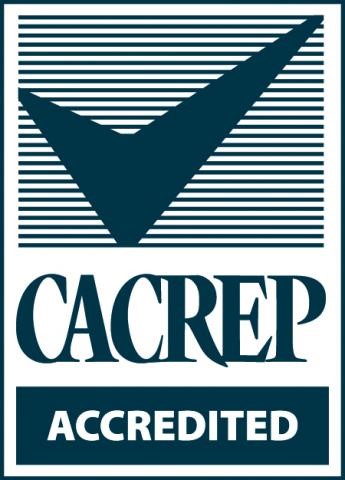Master of Arts in Clinical Mental Health Counseling
Completion
2 Years
Credits
60
Degree Type
Master of Arts (M.A.)
Delivery
Hybrid
Cost per Credit
$800*
Program Cost
$48,000*
*2026-2027 academic year
Corban’s Master of Arts in Clinical Mental Health Counseling is more than a degree or a next step in your education—it’s a path toward meaningful work that matters. This comprehensive, CACREP-accredited program equips you to be an effective Licensed Professional Counselor, ready to serve individuals and communities with skill and compassion.
With demand for mental health professionals projected to grow 19% nationwide between 2023 and 2033,* you can make a difference in a field urgently in need of qualified counselors who can offer hope and support.
Designed for Christians, this program blends clinical mental health training with biblical truth and values. You’ll gain the knowledge and experience to qualify for licensure and work in a variety of counseling environments, without compromising your values or your calling.
*source: Bureau of Labor Statistics
-
100%
job placement rate
-
60+
years of combined faculty real-world experience in the field
-
840
additional mental health counselors needed in Oregon by 2034*
*according to The Health Resources and Services Administration (HRSA)
Featured Courses
Explore major counseling theories while developing foundational skills in the therapeutic process. Practice core techniques through peer feedback, video review, and supervised sessions, all while integrating your personal values and Christian faith into your counseling approach.
Explore how people grow and change throughout life—and how that impacts the way you counsel them. In this course, you’ll examine theories of human development, including emotional, behavioral, cognitive, physical, neurobiological, and moral growth. You’ll also consider how personality and learning theories inform effective counseling with both children and adults.
Understand the diagnostic process and how to assess and treat mental health disorders. Study the DSM, differential diagnosis, and case conceptualization to build a solid foundation for clinical practice and treatment planning.
Integrate biblical doctrine with clinical counseling. Explore core theological topics—such as sin, salvation, and sanctification—and develop a biblically grounded theory of change and human nature that informs your counseling worldview.
For a complete list of courses in this program, view the program overview.
For official course descriptions, refer to the academic catalog.
Corban’s Clinical Mental Health Counseling program has taught me so much about people, life, and myself. It has equipped me to work well with others, allowing me to make the impact every therapist hopes to make. I am thankful for each of my professors who sought to shape me and my cohort into quality counselors.
Mariah S.

CACREP-Accredited
You can be confident that you’ll receive the highest quality education and be well-prepared to make a difference as a licensed professional counselor with Corban’s Master of Arts in Clinical Mental Health Counseling.
Accreditation by the Council for Accreditation of Counseling & Related Educational Programs (CACREP) ensures that the program provides the appropriate knowledge and skills areas necessary for you to enter the counseling field.
What to Expect
Hybrid Learning
Classes are built on a hybrid model of evening and online classes. Meet with your instructor and classmates one night per week at Corban’s Salem, Oregon, campus while also enjoying some the flexibility of online coursework.
Two-Year Program
Becoming a clinical mental health counselor is a goal you can achieve! Cohorts start each fall, and you can complete the 60 credits in this rigorous program in two years when you attend at a full-time pace.
Cohort Model
You’ll be part of a cohort of students who walk through the program together. This model builds camaraderie and long-lasting friendships as well as a professional network that you can carry with you into your counseling career.
Biblical Integration
This program prepares counselors who are Christians to serve diverse populations in both secular and faith-based settings, meeting people where they are. Through coursework grounded in Christian ethics and theological principles, you’ll be able to integrate your faith with your work and apply a biblical worldview to the practice of counseling.
Experienced Faculty
Corban’s counseling faculty bring years of clinical experience and specialized training in areas like marriage and family therapy, trauma, grief, pastoral care, and counselor supervision. They’re not only well-qualified—they’re dedicated mentors who will walk alongside you, helping you become a confident, capable counselor who offers hope and support to every client.

Affordable Tuition
Corban University offers the most affordable option among private Christian colleges in the West for each of our graduate programs, while remaining committed to academic excellence and biblical integration.

Generous Scholarships
We’re excited to offer scholarships specifically for graduate students, including Corban alumni, parents of Corban students, military, members of partner network churches, and employees of non-profit or ministry organizations.
Program Takeaways
Foundation for Licensure
This CACREP-accredited program meets Oregon Board of Licensed Professional Counselors and Therapists (OBLPCT) standards and equips you to pursue licensure in Oregon or other states. You’ll graduate confident in your ability to serve individuals and families with skill, integrity, and compassion, integrity.
Broad Clinical Preparation
You’ll engage with a wide range of clinical topics through both coursework and real-world practice. From trauma and grief to marriage and family counseling, you’ll develop a strong theoretical and ethical framework—and learn how to approach each client with empathy, professionalism, and unconditional positive regard.
Relationship-Driven Counseling
At Corban, counseling is more than technique—it’s about care. You’ll be trained to build meaningful, therapeutic relationships, using clinical skills rooted in trust, active listening, and emotional safety. This kind of relational care helps clients feel seen and supported—and encourages them to keep coming back for the support they need.
Practical Experience
Supervised practicums and internships give you practical preparation for licensure and clinical work. Up to 400 internship hours can count toward the 2,400 hours required for licensure in Oregon. With over a dozen partner sites—including Corban’s own Counseling Center and Salem Free Clinics—you’ll gain firsthand experience serving diverse populations while sharpening your skills in assessment, diagnosis, and treatment planning.
-
100
practicum hours in direct client service and supervision
-
600
internship hours
-
100%
internship placement
Note: Individuals enrolled in this program may be required to pass a criminal background check in order to complete practicum requirements and to pursue professional licensure and career opportunities.
Featured Faculty
Dr. Lori Schelske
Program Director, Clinical Mental Health Counseling | Associate Professor of Clinical Mental Health Counseling | Director, Corban Counseling Clinic
lschelske@corban.edu(503) 375-7166
Dr. Ryan Connor
Associate Professor of Clinical Mental Health Counseling
rconnor@corban.edu(503) 375-7188
The mission of Corban University’s Clinical Mental Health Counseling (CMHC) program is to prepare competent, clinical mental health counselors who promote social, cultural, psychological, spiritual, and physical well-being of individuals, families, communities, and organizations.
Professional clinical mental health counselors serve as advocates in promoting wellness and social justice. This is accomplished through intentional focus on increasing students’ personal development as well as awareness of self and others; developing knowledge and applying a theory to practice model in the development of clinical skills; case conceptualization; applied ethical awareness; appreciation of diversity; productive vocational skills, and mastery of the cognitive, behavioral, and emotional dynamics that permeate the human experience.
Corban’s mental health counseling students are incrementally exposed to a broad range of clinical issues through a breadth of coursework and clinical practice. Students learn to show unconditional positive regard and to develop a coherent theoretical, ethical, and multicultural framework for counseling practice. Additionally, students are prepared to serve as change agents in their community, state, region, and world. Graduates deliver effective services in a variety of mental health counseling job placements and are eligible to apply for licensure and certification upon successful program completion.
- Students demonstrate sufficient knowledge and skills based on the core and specialty areas of the CACREP standards.
- Students demonstrate professional dispositions required for success in the counseling field.
- Students in the counseling program reflect the demographic diversity of the communities they will be serving.
- Professional Counseling Practice/Ethical Practice: Students will demonstrate their understanding of professional and ethical practice, including knowledge of professional roles, advocacy processes, ethical and legal procedures in counseling, technology, and record keeping.
- Social and Cultural Diversity: Students will demonstrate their knowledge of social and cultural diversity in terms of counselor roles, multicultural and pluralistic trends, and counseling practices in areas of identity development, social justice, advocacy and conflict resolution.
- Human Growth and Development: Students will demonstrate their understanding of individual and family development; systemic and environmental factors that affect human development; culturally relevant strategies for promoting development and wellness across the lifespan.
- Diagnosis/Treatment Planning: Students will demonstrate and understanding of: diagnostic process of the use of the DSMV; case conceptualization, treatment plans, development of measurable outcomes for clients, and evidence-based counseling strategies and techniques for prevention and intervention.
- Counseling and Helping Relationships: Students will demonstrate an orientation to wellness and prevention, suicide prevention models and strategies, crisis intervention, trauma-informed and community-based strategies.
- Career Development: Students will demonstrate their understanding of career development processes, techniques and resources, and the application of assessment instruments and techniques relevant to career planning and decision-making in a global economy.
- Counseling Theory & Skills: Students will demonstrate an understanding of counseling theories, theories of addictions, and appropriate counseling intervention models, and essential, interviewing, counseling micro skills, and case conceptualization skills.
- Group: Students will demonstrate their understanding of the principles of group dynamics, theories of group counseling methods, behaviors, and assessments.
- Assessment & Testing: Students will demonstrate their understanding of standardized and non-standardized assessment techniques, environmental assessments, issues of validity, reliability, and cultural factors necessary for an ethical approach to assessment.
- Research: Students will demonstrate their understanding of the importance of research in advancing the counseling profession, as well as their grasp of research methodology, related ethical issues and application of research in practice.
- Spirituality: Students will articulate a spiritual framework for counseling that demonstrates an understanding of the impact of spiritual beliefs on counselors’ and clients’ worldview; demonstrate the ability to show unconditional positive regard, respect, and advocacy for clients.







